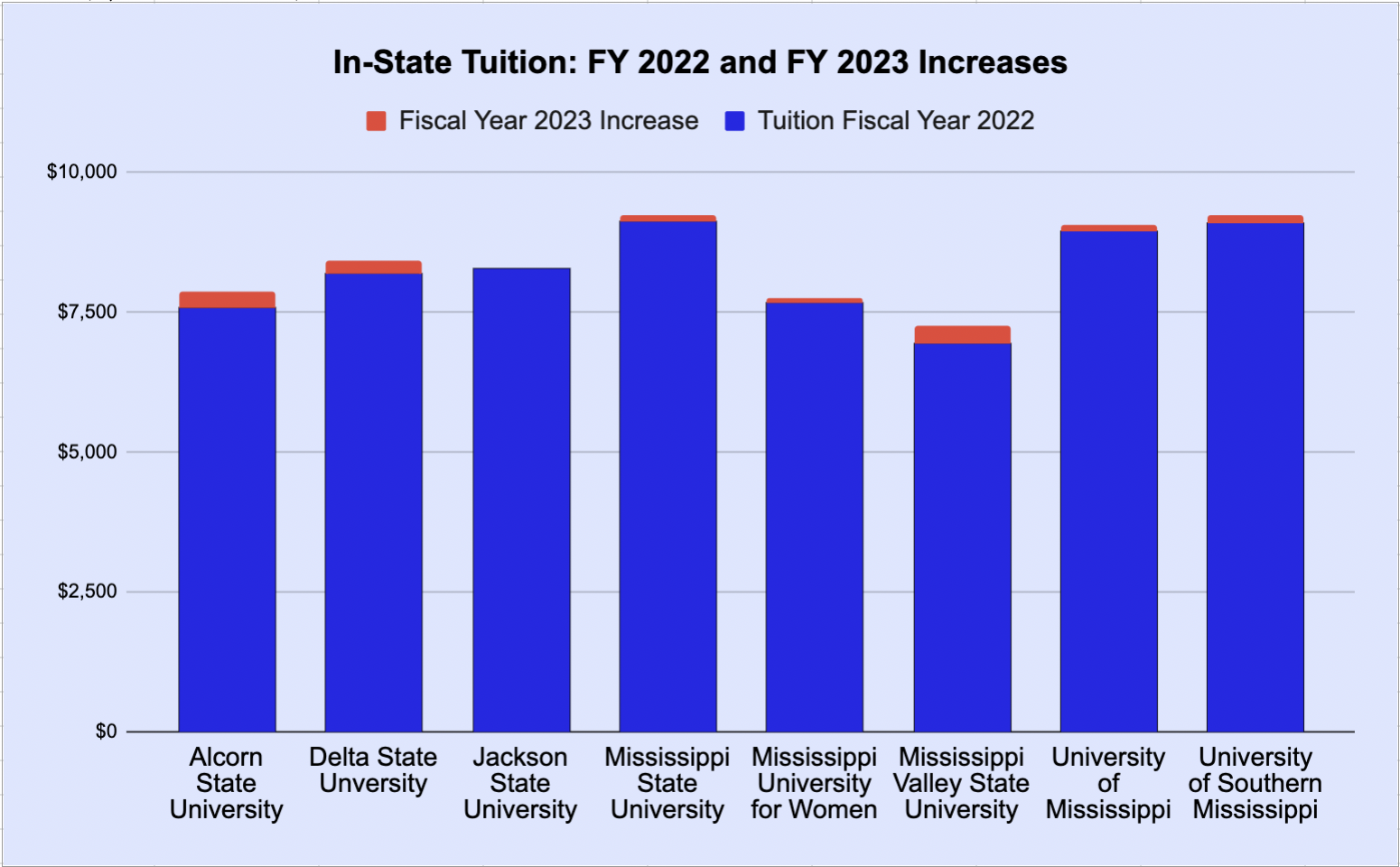Tuition for both in-state and out-of-state students will increase this fall at the University of Mississippi and six more of Mississippi’s public universities. The increases come at a time when the accessibility of higher education – especially with respect to the cost of attendance – is becoming more concerning.

Jackson State University is the only state university where students will not see a tuition increase.
For in-state students at the University of Mississippi, tuition will increase from $8,934 to $9,072, up $138 or 1.54%. Out-of-state tuition will increase from $25,776 this fiscal year to $26,292 in fiscal year 2023, an increase of $516 or 2%.
The decision was made by the Institutions of Higher Learning Board of Trustees in their monthly meeting on April 21.
The Mississippi state legislature increased its appropriations in education and general funds to state universities to approximately $411 million, a significant rise from last year. Despite this, students will still see a tuition increase.
“Trustees, I do want to point out that if it had not been for the generous increase in appropriations we received from the legislature, the institutions would have had to raise tuition even higher,” Commissioner of Higher Education Alfred Rankins said.
Students at the University of Mississippi are, naturally, opposed to the increases.
Paige Epplin, a freshman pharmacy major and out-of-state student, pays more to attend college at the University of Mississippi than her in-state classmates. She is not pleased about the increase.
“As an out-of-state student, tuition is definitely something I keep in mind. I’m already paying a lot as an out-of-state student, and it’s definitely not beneficial to be paying more, and I wish it wasn’t increasing,” she said.
Traditionally, out-of-state tuition is more expensive than in-state tuition. This is because non-resident students and their guardians have not paid tax dollars to the state — which funds public universities — like in-state residents have.
Ramani Nguyen is also a freshman pharmacy student. Unlike Epplin, he does not pay to attend school at the University of Mississippi — receiving enough scholarship funding to fully cover his cost of attendance. However, he does not think it is fair for students to have to pay more.
“While I have tuition paid for, I still find it unfair that other students will have to pay for an increase,” he said.
Many students offset the cost of tuition at the University of Mississippi with both need and merit based scholarships.
However, some state-funded need based scholarships, like the Higher Education Legislative Plan, are in jeopardy after Mississippi’s post-secondary board voted to recommend significant changes to it and two other programs. The changes, which are to be considered in this legislative session, could mean losses in the thousands, particularly for low-income students.
These changes, coupled with an increase in tuition could make higher education even less accessible for low-income Mississippians.
Both Nguyen and Epplin see viable ways to make college more affordable for everyone. Epplin pitched an idea of her own:
“Not necessarily making tuition free, but perhaps a tuition freeze,” she said. “Like the amount you pay your freshman year is the amount you pay all four years.”
This is a policy that is already in place in other states, such as Illinois.
Statewide, in-state tuition remains the highest at Mississippi State University where tuition will increase 1.5% to $9,248 for in-state students. For out-of-state students, the increase is 2% to $25,294. The largest dollar increase for in-state students will be at Mississippi Valley State University where students will pay $346 more.
Overall, tuition at the state universities will increase an average of $177 for in-state students and $516 for out-of-state students.



























